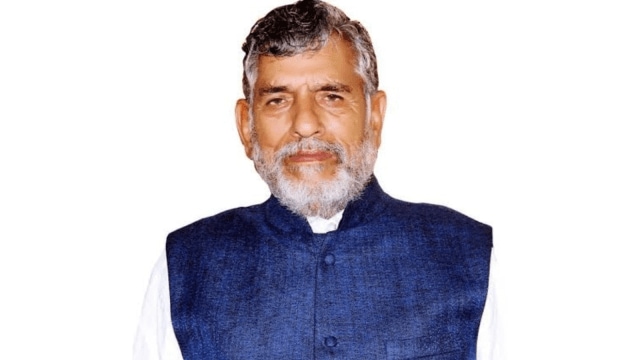Former statehood agitator, Cabinet minister, and founding member of Uttarakhand Kranti Dal (UKD), Diwakar Bhatt (79), renowned for his ability to mobilise people from “river at Shriyantra Tapu to the peak of Khait Parvat”, died on Tuesday. Bhatt had been undergoing treatment and had returned to his Haridwar home when he died.
Politicians from across party lines paid tribute to Bhatt, who was endearingly called the Field Marshal of the statehood movement.

CPI(ML)’s Indresh Maikhuri, an alumnus of Hemwati Nandan Bahuguna Garhwal University like Bhatt, said he had a remarkable ability to build movements and infuse them with momentum. “He possessed the skill to carry a struggle from the middle of the river at Shriyantra Tapu to the peak of Khait Parvat. From his college days, he could attract crowds for a cause,” said Maikhuri.
When the movement started for accessible higher education in Garhwal, Bhatt was one of the leaders spearheading it from the grassroots, resulting in the formation of the Garhwal University, later HNB Garhwal University.
Before the formation of UKD, Bhatt was a trade union leader and worked at Bharat Heavy Electricals Limited. He went on to become the secretary of its all-India union, said Maikhuri.
On July 25, 1979, the Uttarakhand Kranti Dal was formed in Mussoorie by Kashi Singh Airy, D D Pant, and Bhatt.
Bhatt’s long-time friend from UKD, Shivanand Chamoli, recalled how in 1992, the party launched the movement for Gairsain as the capital with Bhatt at the helm. “He would say that our demands were not being heard in Lucknow, and the only way to fulfil them is by carving a hill state out of UP. Little did we know that it would remain the same in the new state, but we were driven,” he said.
Story continues below this ad
When Mulayam Singh Yadav announced 27% reservation in higher education and services, the statehood movement gained a reinvigorated pace. Chamoli said the anger had more to do with selective appointments by Lucknow leaders and little to do with reservation itself.
“Bhatt led several strikes, demanding that locals be given jobs. We also called the Panchayati Raj system in the hills unsustainable due to the distance between villages under one panchayat,” he said. For instance, Niti and Mana, under the same panchayat, were 100 km apart.
What further catapulted him to glory were the twin hunger strikes at Shriyantra Tapu and Khait Parvat. In 1995, he kicked off a hunger strike at Shriyantra Tapu on the banks of the Alaknanda River. On November 10, 1995, police opened fire on the crowd, killing two. His next destination for agitation was Tehri’s 3,000-metre-high peak, Khait Parvat, said Chamoli. Following the protests, the then Minister of State for Home Affairs had a dialogue with leaders, including Bhatt. During a split in the party, one of the factions was led by Bhatt. The split was resolved after the state formation, and Bhatt served as the president of the UKD for three consecutive terms.
After the formation of Uttarakhand, he contested Assembly elections in 2002 from Devprayag, but lost. His wife, Indu, died by suicide the same year.
Story continues below this ad
Journalist and political analyst SMA Kazmi said that when he contested again in 2007, Bhatt would tell voters to bring a timber log to his house on election day in case he lost. “However, he won and extended support to the BJP, which was a few seats shy of a majority,” Kazmi said. Bhatt was made the Revenue Minister in the B C Khanduri Cabinet.
Chamoli, who met him 10 months ago, said the news of his demise came as a shock. “Pura Uttarakhand hairan hai. He was so powerful, he could rock the state,” he said.









